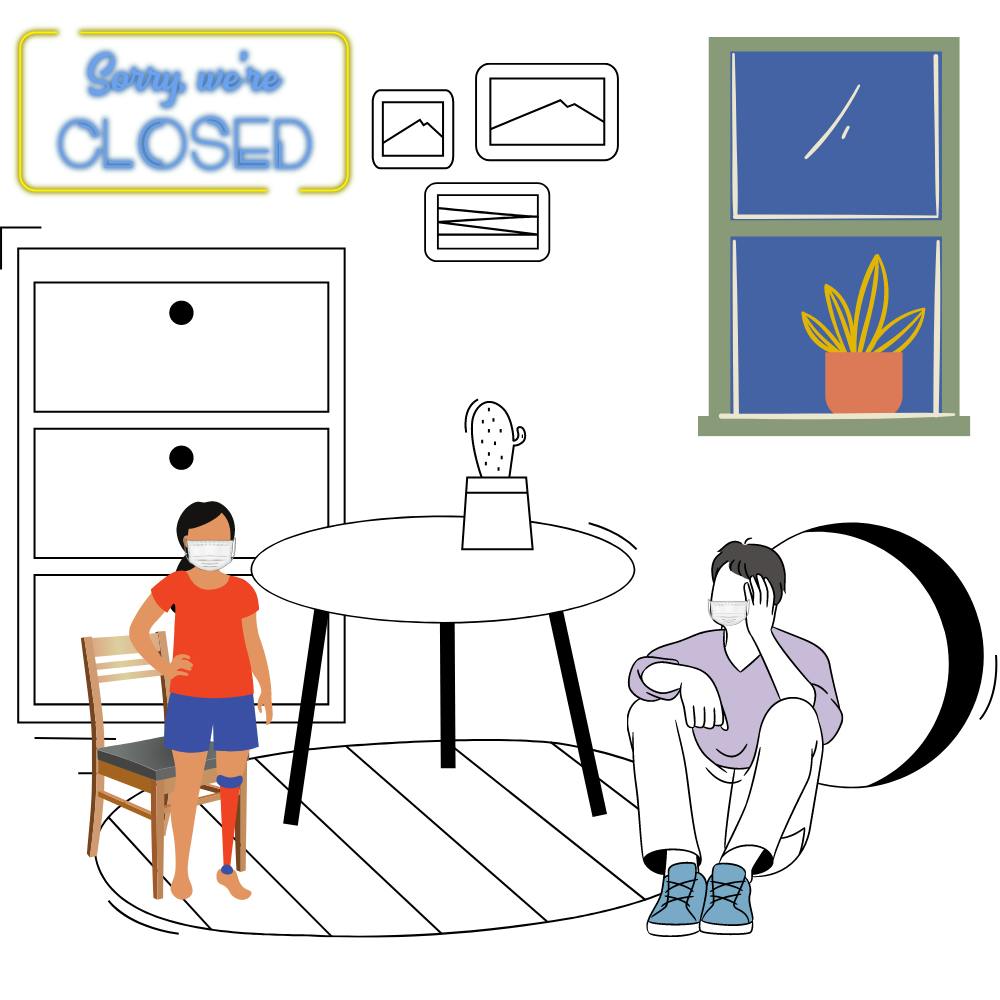A 2020 survey published by the Hopkins Graduate Student Association (GSA) found that more than 25% of graduate students at the School of Medicine experience a disability, such as a mental health disorder or chronic illness.
In order to discuss the new challenges the pandemic has introduced to these individuals, the Equal Access in Science and Medicine committee, a student-led organization for trainees with disabilities, chronic illnesses and mental health conditions at the School of Medicine, held a student panel on April 13 and 14 with the support of the JH Needs U COVID-19 Well-Being initiative.
The event was moderated by Bonnielin Swenor, director of the Disability Health Research Center, and the panel consisted of five Hopkins undergraduate and graduate students who identify as having a disability.
The panel began with a discussion of the impact of COVID-19 and whether the pandemic has made the public more aware of the needs of people with disabilities.
Sharmaine Miller, a postdoctoral fellow in the Department of Environmental Health and Engineering at the School of Public Health, addressed how the pandemic has shifted understanding of mental health.
“I feel like the pandemic has been very forgiving in regards to mental health elements such as anxiety and depression. Of course, the pandemic has created this huge shift to this work-at-home environment on Zoom predominantly,” Miller said. “There has been this acknowledgment of physical health disabilities in regards to the greater risk of acquiring COVID.”
Despite greater recognition for students with disabilities during the pandemic, Amy Gill, a Biomedical Engineering PhD candidate, expressed concern that these changes may disappear once life returns to normal.
“I am worried that things are going to swing the other way,” Gill said. “They might say, ‘It’s safe to go back in person, so let's throw out all the other accommodations and changes we have made for other people because most people seem to want to be fully back in person.’”
Gill also recommended that the University consider an option to keep lectures online.
Nicolette Vigiano, a master’s student in the Public Health Biology program, added that it is important to consider the comfort levels of all students, particularly those who are at increased risk of contracting COVID-19.
“It is important to understand people's comfort levels, but it is also important to understand and respect if somebody is more uncomfortable than someone else,” Vigiano said. “This pertains to disability in a huge way because now you have people who are immunocompromised, more at risk for having more severe covert symptoms.”
One of the central themes of the event was the resilience of the disability community in response to the pandemic. In her opening statement, Swenor commented on this quality.
“We are the vanguards of resilience,” she said. “My hope is that COVID-19 will bring more understanding, inclusion and opportunity to the disability community.”
Erin Kavanagh, a graduate student in Biomedical Sciences, agreed and discussed how the quotidian challenges faced by individuals with disabilities have allowed them to adapt to the pandemic.
“I think what a lot of people don't realize about people with disabilities is that they have an incredible ability to adapt themselves to their environment because there are so many barriers in the real world where we are not given equal access, and so we have to find our own way around that,” Kavanagh said.
According to Gill, another common strength among individuals with disabilities is self-advocacy. For instance, some panelists felt uncomfortable with an ethics training that they felt misrepresented diversity and inclusion. In response, they pushed for changes in the program.
“Several of us reached out to the program director and voiced our opinions about the event and suggested changes,” Gill said. “As a disabled person used to speaking up for myself, I was more than willing to speak up for things that have been affecting other people as well.”
Swenor reflected that many of the stories discussed by panelists relied on the resilience of the community of which they are a part.
“You are resilient because the people around you support you and the environment you are in,“ Swenor said. “Unfortunately for the disabled community, far too often that is not there.”





